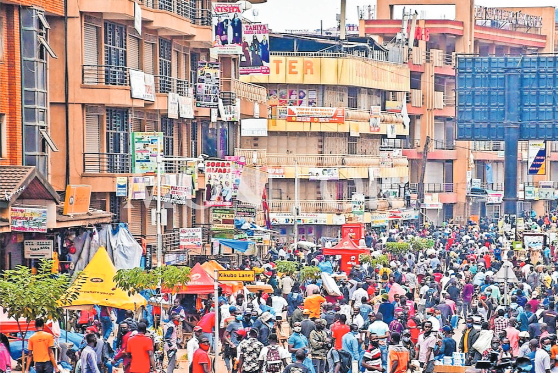Prime
Non-violence: A moral appeal for social change

Author: Augustine Bahemuka. PHOTO/COURTESY
What you need to know:
- However, this declaration has been challenged by his closest contender, National Unity Platform’s (NUP) Robert Kyagulanyi, who urged all Ugandans to “use non-violent and legal means” to protest the presidential election results. It is the former approach that absorbed my mind.
Uganda is arguably still experiencing the aftermath of the general election held on January 14 in which Yoweri Museveni was declared winner of the presidential race.
However, this declaration has been challenged by his closest contender, National Unity Platform’s (NUP) Robert Kyagulanyi, who urged all Ugandans to “use non-violent and legal means” to protest the presidential election results. It is the former approach that absorbed my mind.
Non-violent resistance is both principle and practice of using non-forceful means when faced with situations which disrupt social life. Every society is guided by principles and norms. However, their absence and or violation inevitably creates flash points for social conflict.
Mahatma Gandhi is arguably the most popular icon of the 20th Century who applied, practiced and lived non-violence as a way to influence social change (against the caste system and inequality of women) and resist British colonial rule in India. Other notables include Martin Luther King Jr in his struggle for inclusive civil and political rights in America, and Nelson Mandela in the fight against apartheid. In this article, I present two basic principles of non-violence as understood by Mahatma Gandhi.
Basic principles
Non-violence is active protest put up against the violation and disruption of social life and it is categorically violent-free. Gandhi appropriated this concept to shape his philosophy of Satyagraha (firm to the truth), has two key features, namely: truth and non-violence.
Truth is the ultimate reality which ought to be defended against all forms of injustice. Non-violent resistance ought to be founded on rational arguments to demonstrate why certain acts are unjust. These arguments are then defended in the public square in order to win the support of the masses. The agent of social change has the duty of identifying the injustices in society and pronouncing them publically to raise awareness among the masses.
Non-violence is an essential aspect because the use of violence goes against the very foundation principle of social life, that’s to say, justice. Gandhi’s understanding of non-violence transcends its literal meaning of not hurting or harming the other. For him, it is a lifestyle that radically rejects all forms of injustice; and rules out hatred, deceit and revenge because this becomes an instrumental use of the opponent.
Satyagraha then becomes a moral appeal whose means (non-violent action) are intended to pursue an end (truth) by influencing positive change and cooperation. This way of life, Gandhi argues, equips us with an inner force which is greater than any weapon of destruction devised by human ingenuity.
Non-violence in Ugandan context
How then would Mr Kyagulanyi’s non-violence approach take shape in appealing for social change in Uganda? First, mutual openness to positive change. The underlying objective of non-violence is to influence positive change in the opponent. However for Gandhi, you ought to reflect this change to your opponent. In this case NUP ought to live and practice the very aspects of social change that they are fighting for. This way, they will be more appealing to the masses.
Second, NUP has the duty to spread the non-violence gospel in public square taking care to disseminate the truth (facts) about injustices affecting Ugandans. Even more, urge the masses to desist from violence in any form and shape – deceit, abusive language, hatred and revenge.
Third, NUP needs to be watchful of spoilers whose role is to infiltrate the system and compromise the integrity of well-intended activity. As has been observed elsewhere in South Africa, Zimbabwe, Russia and China, the consequences of non-violence can be heavy especially in the face of militarised governments.
Mr Bahemuka is a peace practitioner based in Nairobi [email protected]




